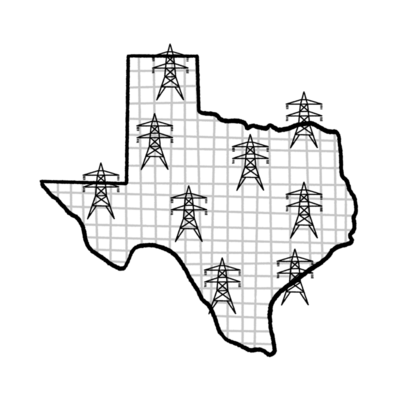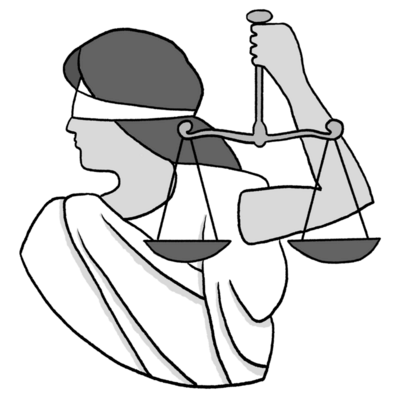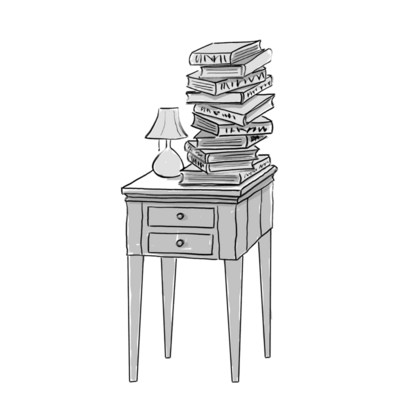The Texas power grid is more reliable today than it was three years ago, when a massive winter power failure convulsed the state. But restoring trust is a longer-term challenge. Officials will have to show they’ve earned it.

Why is Christian Science in our name?
Our name is about honesty. The Monitor is owned by The Christian Science Church, and we’ve always been transparent about that.
The Church publishes the Monitor because it sees good journalism as vital to progress in the world. Since 1908, we’ve aimed “to injure no man, but to bless all mankind,” as our founder, Mary Baker Eddy, put it.
Here, you’ll find award-winning journalism not driven by commercial influences – a news organization that takes seriously its mission to uplift the world by seeking solutions and finding reasons for credible hope.
Explore values journalism About usMonitor Daily Podcast
- Follow us:
- Apple Podcasts
- Spotify
- RSS Feed
- Download
 Mark Sappenfield
Mark Sappenfield
You know the Monitor thinks trust is vital to solving today’s challenges. That’s what our Rebuilding Trust project is about. But look around. Trust stories are everywhere, and I wanted to highlight one.
It’s a news story in Christianity Today about the distrust that has shredded the social fabric of East Palestine, Ohio, since a train derailment dumped toxic chemicals in 2023. Is the town safe or not? No one knows whom to trust.
Enter a scientist whose approach is not just facts, but also healing. Says one observer, “Knowledge comes through unfolding relationships and is based on love.”
Already a subscriber? Log in
Help fund Monitor journalism for $11/ month
Monitor journalism changes lives because we open that too-small box that most people think they live in. We believe news can and should expand a sense of identity and possibility beyond narrow conventional expectations.
Our work isn't possible without your support.
Today’s stories
And why we wrote them
( 7 min. read )
Today’s news briefs
• Gaza cease-fire deal proposal: President Joe Biden says Israel would be willing to halt its war on Hamas in Gaza during the upcoming Muslim fasting month of Ramadan if a deal is reached to release some of the hostages held by the militants.
• Washington eyes shutdown: President Joe Biden meets with top Democrats and Republicans in Congress in a bid to head off a partial government shutdown beginning in four days and to urge lawmakers to pass an aid package for Ukraine and Israel.
• Michigan heads to polls: Joe Biden and Donald Trump are marching toward their respective presidential nominations. But Michigan’s primary on Tuesday could reveal significant political perils for both.
• Japan’s birthrate falls to new low: The number of babies born in Japan fell for an eighth straight year to a fresh record low in 2023, preliminary government data shows, underscoring the challenge the country faces in trying to stem depopulation.
( 4 min. read )
President Joe Biden is facing calls from erstwhile allies to exit the race, amid concerns he could lose in November. Others say the criticism is unhelpful – and unwarranted.
( 9 min. read )
States are leaning into the “science of reading” to address a growing crisis in learning. But success might depend on factors that go beyond the classroom.
( 5 min. read )
For decades, Gambia’s dictator and his henchmen were untouchable. Now international courts are offering victims a new path to justice.
( 3 min. read )
Literature can change minds. It can also help us imagine a different future. From redressing old wrongs to taking new steps, the protagonists in our 10 picks for this month seek justice and autonomy.
The Monitor's View
( 2 min. read )
Poland, which was the pioneer in eroding the Soviet empire during the 1980s, was rewarded last week for being a pioneer in rolling back an authoritarian trend within Europe. The executive branch of the European Union announced that Poland would start receiving $148.5 billion in frozen EU funds after the country – led by young voters – took the first steps in restoring a core principle of democratic governance: equality in rule of law before impartial judges.
“Poland is moving from being a rule of law problem child to becoming a champion of democracy,” said German Minister of State for Europe Anna Lührmann.
The money due Poland had been withheld by the EU because the previous government, under the Law and Justice party (known by its Polish acronym PiS), had violated the separation of powers in eroding the independence of the judiciary. Since 2015, when the party won an election, it had altered the selection process for judges in order to place thousands of party loyalists on the bench.
The PiS lost power after an election last October that saw the highest voter turnout – 74% – in over a century. “Polish citizens chose democracy and the rule of law on the 15th of October,” Donald Tusk, the new prime minister, told reporters. “They are the real heroes of Polish history.”
In particular, voters under age 29 showed up. Their turnout was nearly 69%, compared with 46% in 2019. Under the previous government, they had experienced an erosion of civic liberties marked by greater inequality from court decisions.
“The outcome of the October election should serve as a reminder that democracy’s decline is not inevitable and can be halted,” wrote Patrice McMahon, a political science professor at the University of Nebraska-Lincoln, in The Conversation.
The new ruling coalition under Mr. Tusk faces an uphill struggle to clean up Poland’s judiciary. The current president, a PiS loyalist whose term ends next year, can veto measures passed by the parliament. Yet the EU has enough faith in the new government’s initial reforms to start releasing the bloc’s funds promised to Poland.
“We are impressed by [the efforts] of the Polish people to restore the rule of law as the backbone of your society,” said European Commission President Ursula von der Leyen. “A society where everyone plays by the rules. A society where people and businesses can trust the institutions and can hold authorities to account. Together we will protect the rule of law all over Europe.”
A Christian Science Perspective
Each weekday, the Monitor includes one clearly labeled religious article offering spiritual insight on contemporary issues, including the news. The publication – in its various forms – is produced for anyone who cares about the progress of the human endeavor around the world and seeks news reported with compassion, intelligence, and an essentially constructive lens. For many, that caring has religious roots. For many, it does not. The Monitor has always embraced both audiences. The Monitor is owned by a church – The First Church of Christ, Scientist, in Boston – whose founder was concerned with both the state of the world and the quality of available news.
( 4 min. read )
The spiritual harmony that God knows is established and within reach – everywhere.
Viewfinder

A look ahead
Thank you for joining us today. Please come back tomorrow when Henry Gass and Sarah Matusek look at how Texas law enforcement and immigrant communities are preparing for the state’s tough new law to crack down on immigrants crossing the U.S. southern border.
We also invite you to check out an additional feature in today’s story about the Texas power grid. Author Henry Gass does a full read of the story and offers brief remarks about his approach to reporting. Click the “deep read” option to see the audio player.








